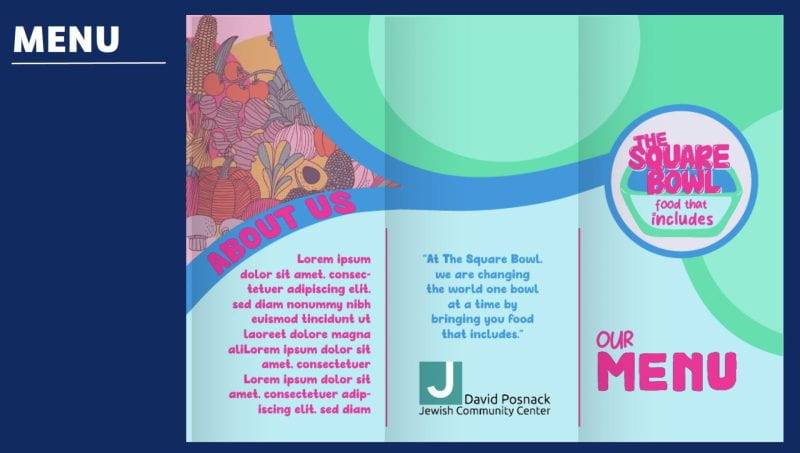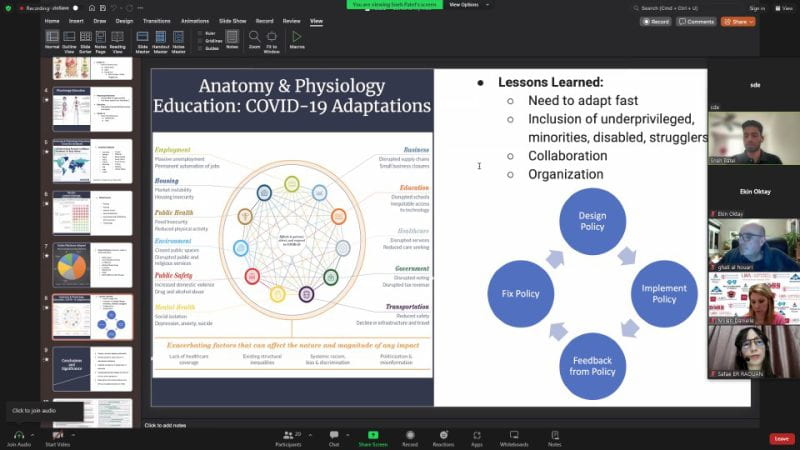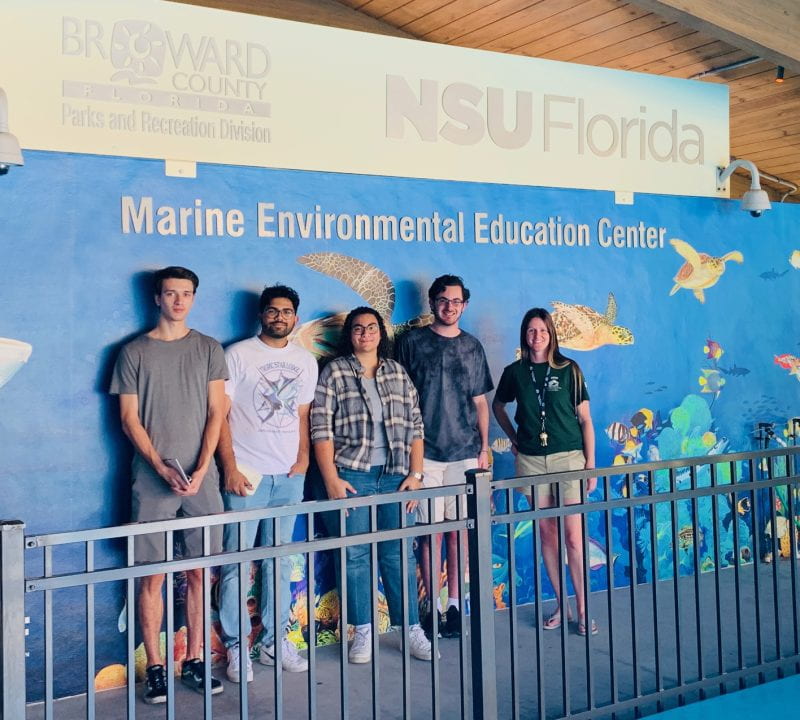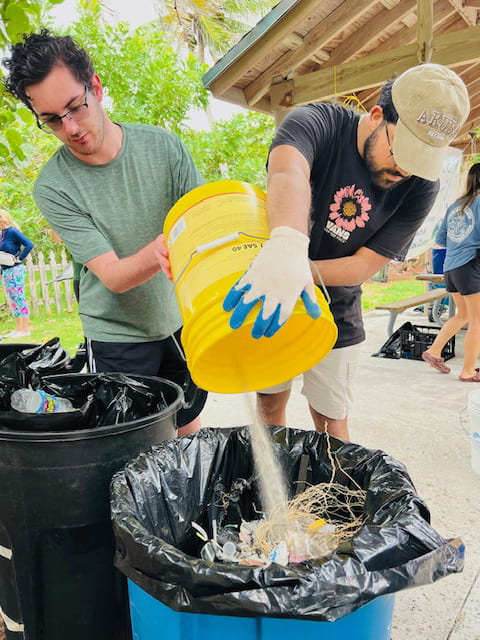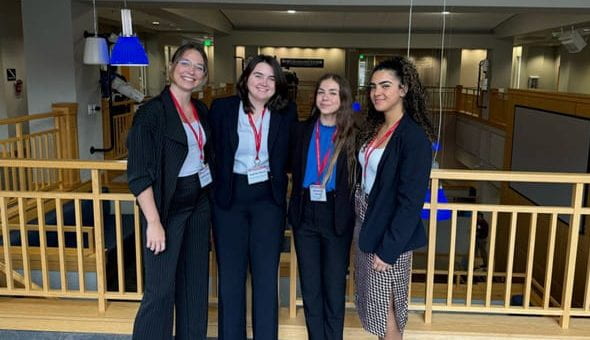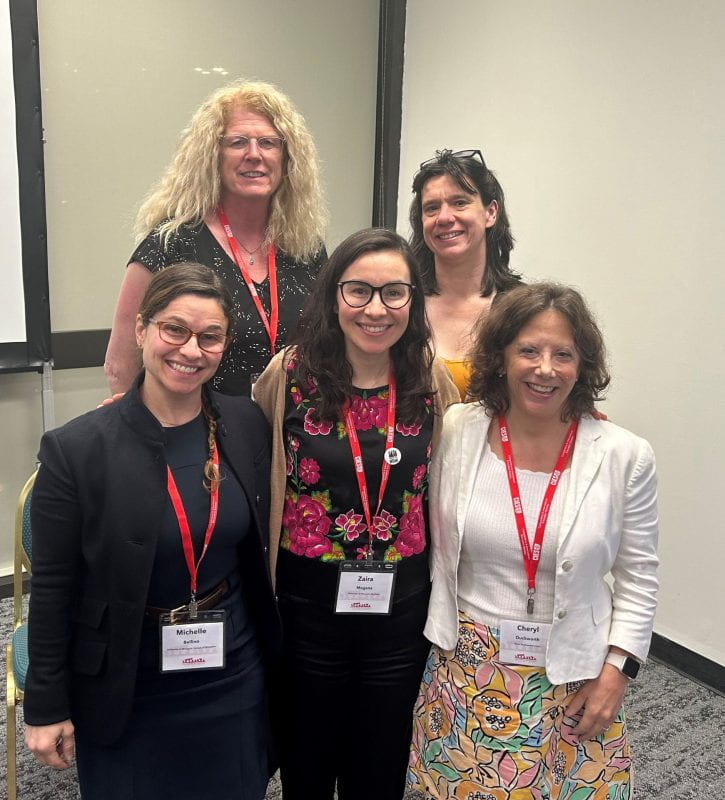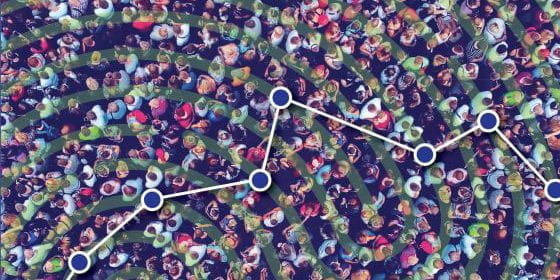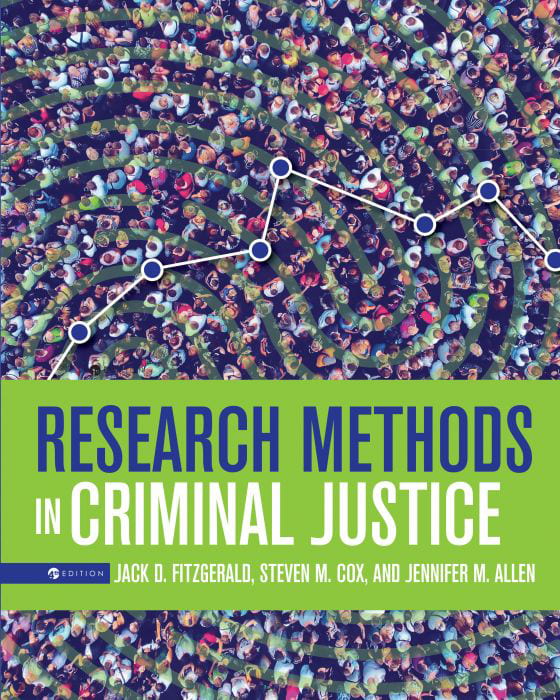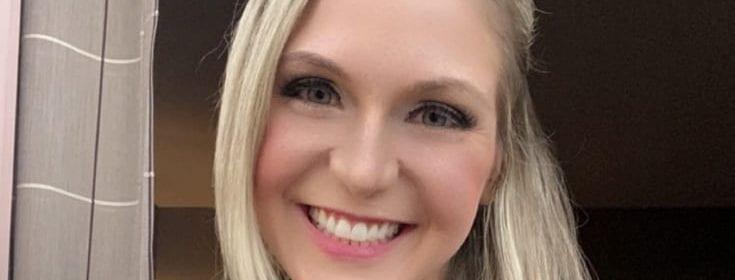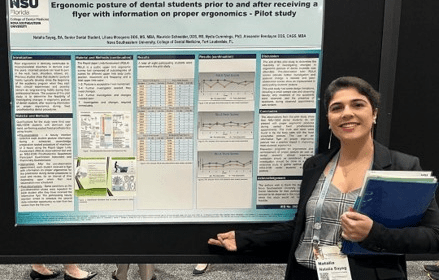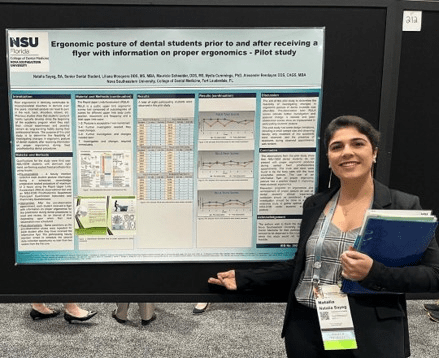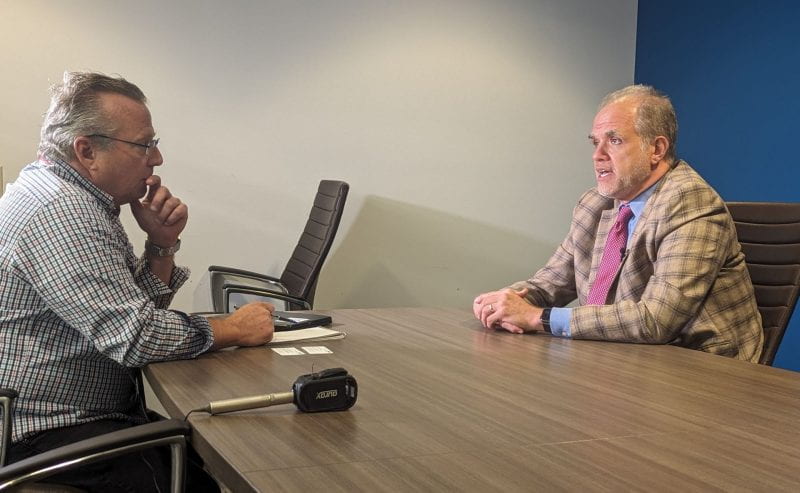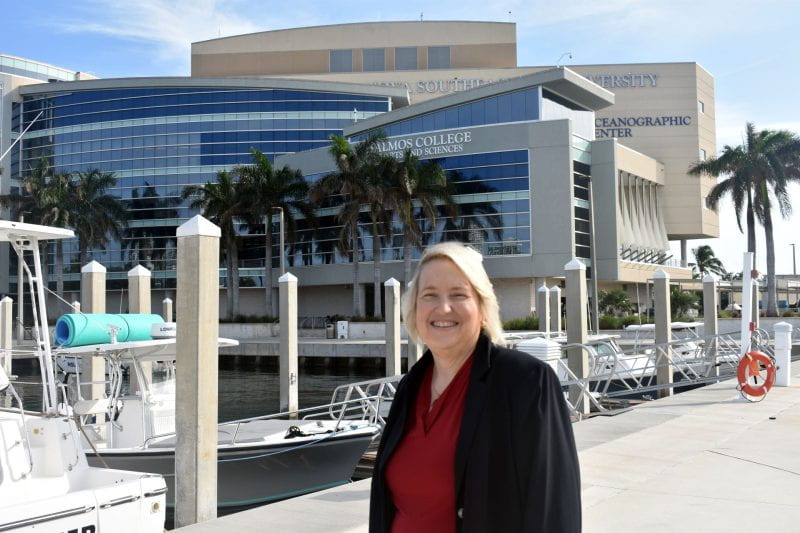
Melissa Dore, the director of academic support and administration for the Halmos College of Arts and Sciences
Before Nova Southeastern University became Nova Southeastern University, Melissa Dore was here.
Dore was raised in rural Maine, far from the glitz of South Florida and its enticing beaches and balmy temperatures. She was drawn to the small South Florida school formerly called Nova University because of her love for marine studies. It was January 1992. Nova U. had the only master’s program in coastal zone management she could find.
Without realizing it, Dore found herself catching the wave of three decades of historic growth on the once fledgling campus. In 1994, Nova University merged with Southeastern University of Health Sciences, which added colleges of Pharmacy, Optometry, Allied Health, Medical Sciences and Dental Medicine, to form Nova Southeastern University.
For Dore, it was the right place at the right time.
After receiving her master’s degree in Marine Biology/Coastal Zone Management, Dore was hired in 1997 as an administrative assistant at the Oceanographic Center. She now is the director of academic support and administration for the Halmos College of Arts and Sciences.
“Since I have been here, NSU has provided me opportunities I wouldn’t have been able to get in the Northeast,” she said. “In my current role, I am the liaison among student services, students, faculty and administration for the college. I collaborate with others in the dean’s office to streamline processes to benefit the students and to uphold academic integrity.”
Dore’s first studied ostracods – minute aquatic crustaceans – in the marine environment. She worked with scanning electron microscopy to determine the environmental history of a place by using the ostracods as environmental indicators.
“Throughout my time at NSU, the most exhilarating research I participated in was working with the Broward County Sea Turtle Project back in the early 1990s,” she said. “Seeing what hard work we did then continue to grow and come to fruition now is amazing.”
Dore has used her extensive educational background to amplify her impact at NSU.
With her doctorate in higher education leadership, Dore helped develop retention plans at the undergraduate and graduate levels at NSU. Using her M.S. in College Student Affairs, she has explored how to help students enter the university. Her M.S.in Law, which she’ll complete this summer, has enabled her to research artificial intelligence in higher education and its legal ramifications.
“My current work is building resilience in students, staff, faculty and administrators in higher education,” she said. “I am the educational chair of the Academic Resilience Consortium and I have been developing and running a monthly webinar series focusing on how to create mental, emotional and social resilience in all stakeholders in higher education.”
Dore grew up surrounded by great aunts, uncles and grandparents who loved nature and showed her lakes, ponds, streams, bogs and glacial moraines in the Highlands of Maine. There, she learned how to identify animal tracks, birds and animal calls.
“I grew up swimming, boating and mucking around in these glacial waters,” she said.
Among Dore’s most influential role models were Dr. Lynn Margulis, an evolutionary biologist and huge proponent for the significance of symbiosis in evolution, and physicist and oceanographer Allyn Vine, a leader in the development of submersibles to explore the deep sea.
Education has been Dore’s foundation throughout her life, and her positive experiences in that realm at NSU have kept her here.
“One of the driving forces in higher education for me has been the ability to continue to expand my knowledge and work in a collaborative atmosphere,” she said. “Also, the fact I was allowed to see areas of concern and had the ability to develop solutions for the benefit of the students.”
When Dore is not researching or working with students, faculty and staff, she sings and volunteers. She has been singing with the Nova Singers since 1995. This year marks the 48th concert season of the Nova Singers, NSU’s community chorus made up of 140 members — from undergraduate students to older residents. When the 14th Dalai Lama made a historic visit to campus in 2004, Dore was among the singers at the ceremony at the Alvin Sherman Library, where the religious leader honored the university with a “prayer wheel” and received an honorary doctorate of humane letters from NSU.
“We have traveled to Europe, sung in the Vatican and Carnegie Hall, too,” she said. “I also volunteer for the Little Free Libraries in Fort Lauderdale. We stock all the small free libraries around the neighborhoods so everyone has a book to read.”

